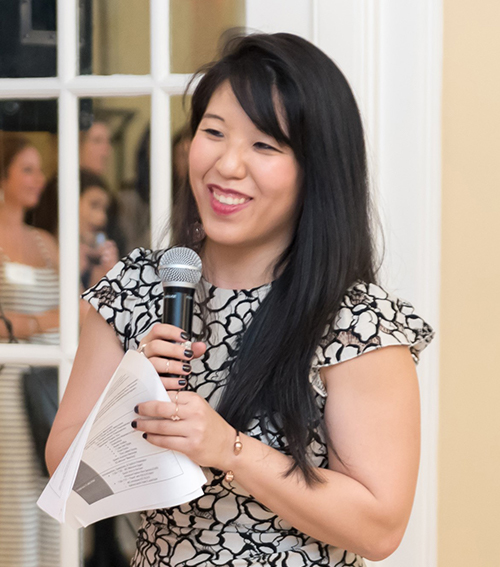

“The ability to advocate for my company and the experience we provide to potential clients is very similar to declaring a position in any history discussion or essay I wrote over my years at UBC.”
Connie Chang, a 2007 History and English Literature Major, now owns her own digital services and consulting agency called Type C Consulting. In her alumni interview, Connie discusses how she got from UBC to her current role, how she applies history to her work today, and some of her most memorable professors from UBC. She also provides excellent advice for students after they leave UBC and are in the process of figuring out what is next.
What attracted you to History at UBC?
An absolute love for the subject matter, courtesy of a wonderful high school history teacher, as well as the intersection of history with my other major, English Literature, and the world at large. Thirteen years later, the lessons I learned from reading and thinking about the past serve to frame the events of an increasingly unstable world through the lens of what has already happened across time.
What were the most influential professors you had during your history degree?
Christopher R. Friedrichs and Anne Gorsuch. Professor Friedrichs because his first year Early Modern World History was the course that spurred me into transferring into Arts from Sciences, and Professor Gorsuch because her Soviet History course taught critical thinking and analysis skills that I still use today.
What is your current position? How does history play a role in this?
I currently own and operate Type C Consulting, a full-service digital communications and consulting agency, working with governmental, corporate, and enterprise-level clients such as Adobe, BC Utilities Commission, BC Patient Safety & Quality Council, the City of Richmond, and the Women’s Health Collective Canada.
Critical thinking and problem solving are at the heart of what I do everyday: finding the best solution for my clients whether it involves designing a website with multiple user personas, working out a coding issue, or consulting on digital marketing strategies. In addition, the ability to advocate for my company and the experience we provide to potential clients is very similar to declaring a position in any history discussion or essay I wrote over my years at UBC.
Every day is different at work, and the ability to adapt to any given situation through these three vital skills, learned through my history courses, has been invaluable.
What other degrees or training did you do in pursuit of your career?
I completed a Double Major in History and English Lit at UBC, and then followed that up with a Diploma of Technology at BCIT in Marketing Management – Entrepreneurship. The critical thinking, problem solving, and communication skills I learned at UBC were key to my success at BCIT, which then taught me how to apply and hone those abilities in a business setting.
Any advice for other students interested in a career in marketing/communications?
I took a roundabout path to get where I am today, but wouldn’t trade the time I spent at either UBC or BCIT for anything. That being said, if you’re looking to step into a marketing and/or communications career straight out of UBC, there are a couple things I would keep in mind:
- Get some work experience before you graduate: There are a lot of types of marketing and communications positions out there – from conversion rate optimization to inbound marketing to copywriting and stakeholder engagement – so it gets a bit confusing on where to start. Find a general marketing or communications coordinator position and you’ll usually get your feet wet on a number of different projects, which will help you figure out what you want to do.
- Get a mentor and find your niche networking group: When you’re starting out, all you want is someone to help define your path – and that’s where a mentor and/or a networking group comes in handy. A mentor who’s a few years ahead in a role that you’re wanting to reach one day can help you navigate the confusing road of how to get there. Similarly, a niche networking group can help you tackle the day-to-day questions that you might have about how to do this, or how to approach that. In short, ask for help: people are more than willing to give it.


